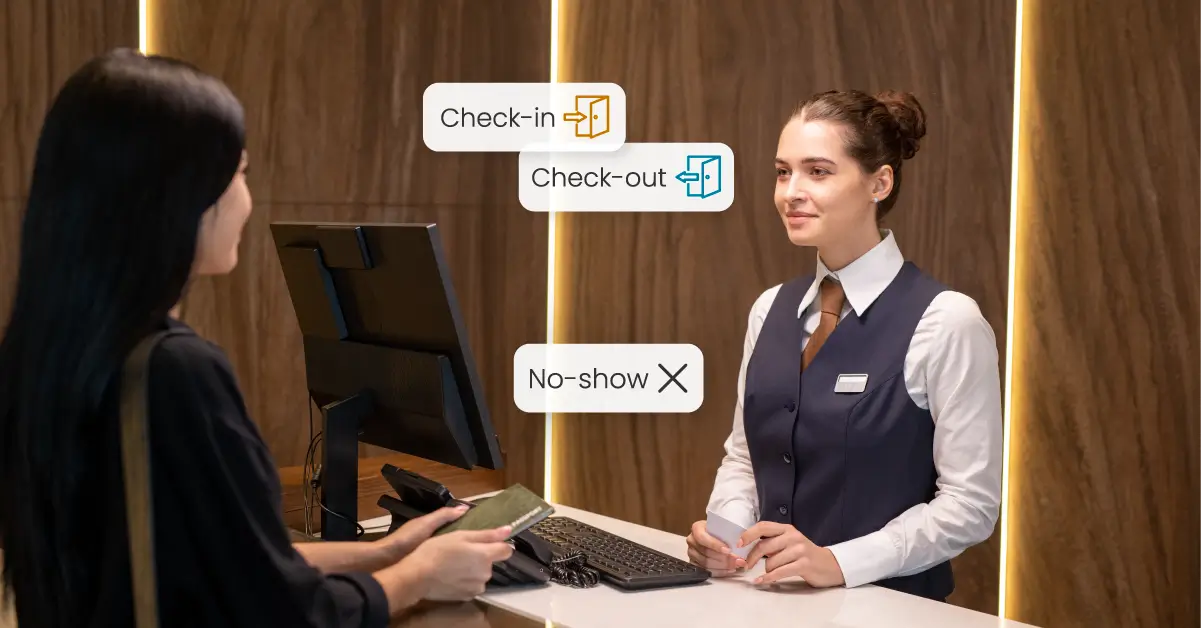Hotel Check-in Times Demystified

Hotel check-in times are a crucial point that is often overlooked. The last thing a guest would want is to come to the property tired from their journey and learn that their room is still not ready. This not only negatively impacts their experience but also reduces the likelihood that they will choose to stay with you on their next visit to your city. The worst-case scenario is they can put you and your receptionist in a hard spot.
For informed decision-making, it’s essential to have information and tips about check-in times. Read on to find out the facts you need to know about hotel check-in times and tips on early or late check-ins.
Essential facts about hotel check-in times
Check-in times are crucial for both guest comfort and the smooth functioning of property operations. They must be carefully selected to balance the needs of the guests with the operational requirements of the property.
What are hotel check-in times?
Hotel check-in time is a specific time frame when the guests can enter their rooms. This time frame varies from property to property but typically falls between 2:00 PM and 4:00 PM. It can, of course, be flexible on some occasions, early check-in and late check-in are possible but might require an extra fee.
Selecting check-in times is ultimately your decision, but it’s important to balance operational efficiency with guest comfort.
Why do hotels have check-in times?
Having check-in times is crucial for a property for a multitude of reasons. The housekeeping needs time to clean the rooms in between guests. To uphold a standard in cleaning they need adequate time to do their jobs.
Properties need to streamline their operations the best they can. Setting check-in times can help with providing a structured framework that helps manage room preparation, staff coordination, and guest expectations effectively.
Understanding the hotel check-in process
Here’s a breakdown of a hotel’s check-in process:
Arrival: Check-in progress begins at the front desk. The guest walks in to speak with the receptionist with their ID in their hand.
Check-in: When the designated check-in time arrives, guests can move into their rooms.
Early check-in: In some cases, a guest may request an early check-in. If you have a free room in your hands you can accommodate this request. Getting an additional fee for early check-in is up to the property owner but it is a common practice. Nonetheless, you need to mention this in your booking process so that the guests won’t be frustrated when they hear about a fee.
Late check-in: For a late check-in guests should inform the property beforehand.
What should you consider when deciding on your hotel check-in time?
Properties need to work like a well-oiled machine, to ensure it happens you must allot specific times for every duty on your property. The time between check-out and check-in is the time that the housekeeping does their work and cleans out the room for the next guest.
Check-in also should be the optimal time when the guest arrives and doesn’t have to wait a long time to rest after their journey. Especially during high-demand periods, such as holidays or peak seasons, check-in needs to be at a time that won’t cause trouble to the staff or the guests.
Conclusion
Understanding and effectively managing hotel check-in times is key to enhancing guest satisfaction and maintaining smooth property operations. With HotelRunner PMS, you can streamline the check-in process, ensuring a seamless and efficient experience for both guests and staff. This advanced property management system helps optimize scheduling, manage reservations, and improve overall operational efficiency, leading to a more satisfying stay for your guests. Contact us to try HotelRunner PMS today!



